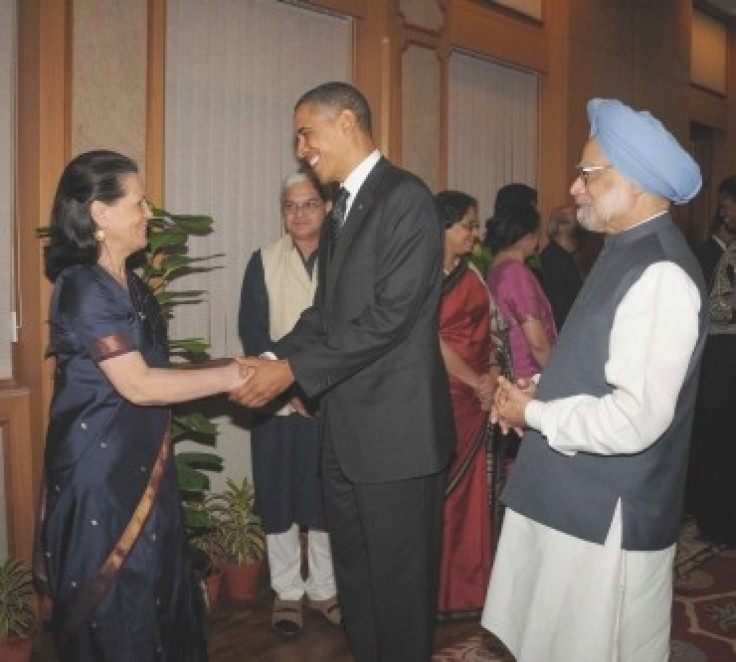Barack Obama: The Honorary ‘Desi’
ANALYSIS

U.S. president Barack Obama has come under fire in India after he criticized New Delhi for contributing to a worsening investment climate and by putting up too many obstacles to foreign investment in the sub-continent.
“[The American business community] tell us it is still too hard to invest in India. In too many sectors, such as retail, India limits or prohibits the foreign investment that is necessary to create jobs in both our countries, and which is necessary for India to continue to grow,” Obama said on Sunday.
The U.S. president also declared that “there appears to be a growing consensus in India that the time may be right for another wave of economic reforms to make India more competitive in the global economy,” adding that “as India makes the difficult reforms that are necessary, it will continue to have a partner in the United States.”
Despite praising India’s economic advancements in recent years, Indian officials across the board responded with fury to Obama’s comments.
Corporate Affairs Minister M. Veerappa Moily said that India’s poor image as a center of investment was based on subjective, anecdotal observations, rather than economic fundamentals, which he insists are solid.
Mukhtar Abbas Naqvi, a senior official of the opposition, nationalist Bharatiya Janata Party (BJP), blasted Obama’s remarks as “laughable,” given the US’ own fiscal travails.
“That country [U.S.] is giving us [India] a certificate on investment and economy when it itself is facing economic problems. We have to ensure our national interests on our own,” he said.
On the other end of the ideological spectrum from the BJP, the Communists also condemned Obama.
“They [Americans] want to open up our economy and market on their terms. For this purpose they are creating this pressure... as it is, no one believes that under the present situation, there will be any sea change in the investment scenario,” said Nilotpal Basu, the leader of The Communist Party of India (Marxist),
However, India’s economy is unquestionably sputtering, suggesting economic reforms are indeed necessary.
After expanding GDP by 8.4 percent in the prior year, the economy climbed by only 6.5 percent for the fiscal year ended March, versus expectations for 7.0-7.5 percent growth. In addition, inflation remains high (in excess of 7 percent) while the value of the rupee has fallen to historical lows.
Up until now, Obama has generally enjoyed broad popularity in India – a country he has long been linked to, both personally and professionally.
Indeed, during his presidential campaign in 2008, he told a crowd of Indian-Americans in San Francisco that he considered himself a “Desi” (a slang term for people of Indian/Pakistani/Bangladeshi descent in the west).
Not only do I think I'm a Desi , but I'm a Desi , he told the rapturous crowd. I'm a homeboy, pointing out he knew how to make Indian dishes like naan (bread) and dal (lentil soup).
He then discussed his close friendships with South Asians when he attended undergraduate school at Occidental College in southern California.
Indians and Pakistanis came together under one roof ... to cause havoc in the university,” he said.
“Those are friendships which have lasted me for years, and continue until this day. I have an enormous personal affection for the people of South Asia. I've also had an orientation toward Asia and a recognition ... that over time we are going to see ... more economic growth, and an economic partnership with the US that is strategic.”
Obama’s campaign team also included some South Asians in prominent roles, including Preeta Bansal, a legal scholar, and Parag Khanna, a foreign policy advisor.
After gaining the White House, Obama and his wife Michelle made a highly-publicized and largely well-received visit to India in November 2010. Obama has also appointed a large number of “Desis” to government posts, including Neal Katyal, acting solicitor general, and Rajiv Shah, Administrator, United States Agency for International Development .
However, Obama’s popularity in India seems to be slipping as his administration matured.
According to a survey by the Pew Research Center last month, only 41 percent of Indians polled said they had confidence in Obama’s abilities and leadership, while 13 percent declared they had “no confidence” in him.
(In late 2010, during the time of Obama’s trip to India, more than 70 percent of Indian respondents declared their confidence in the president.)
© Copyright IBTimes 2024. All rights reserved.











